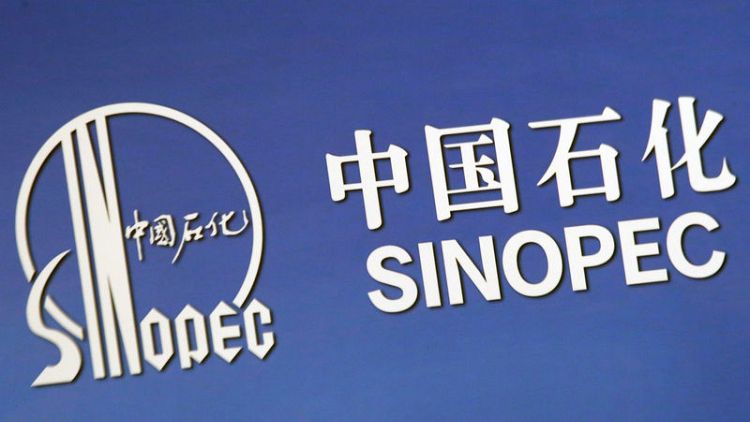BEIJING/SINGAPORE (Reuters) - Sinopec Corp, Asia's top refiner, said on Friday its trading unit Unipec lost 4.65 billion yuan on crude oil hedging in the fourth quarter, a month after it suspended two top executives at the unit.
In late December, Sinopec suspended Unipec President Chen Bo, an industry veteran who helped the company become one of the world's largest oil traders, and a senior Communist Party representative at the company, for unspecified trading losses.
The massive trading loss pulled down the refiner's fourth quarter profits, although its annual result still reached its best finish since 2013.
"Investigations have shown Unipec has applied some inappropriate trading strategies in hedging crude oil business," the company said in a filing to the Shanghai Stock Exchange after the markets closed on Friday.
"Because of wrong calls on the oil price moves, (the company) incurred losses on the futures side of the hedging when oil prices fell," Sinopec said in the statement.
Sinopec reported 62.39 billion yuan (7.05 billion pounds) in net profit for 2018, up 22 percent from the previous year, data from the filling showed.
Total revenue also rose 22 percent in 2018 to reach 2.88 trillion yuan for the full year, Sinopec said.
Fourth quarter net income, however, was only 2.41 billion yuan, Reuters calculations based on the filing showed, down 86 percent from the fourth quarter of 2017. This marks Sinopec's worst quarterly performance since the third quarter of 2015.
Revenue in the last quarter of 2018 rose to 808.6 billion yuan from 615.2 billion yuan in the same period a year earlier.
(Reporting by Meng Meng in BEIJING and Chen Aizhu in SINGAPORE; Editing by Tom Hogue)



